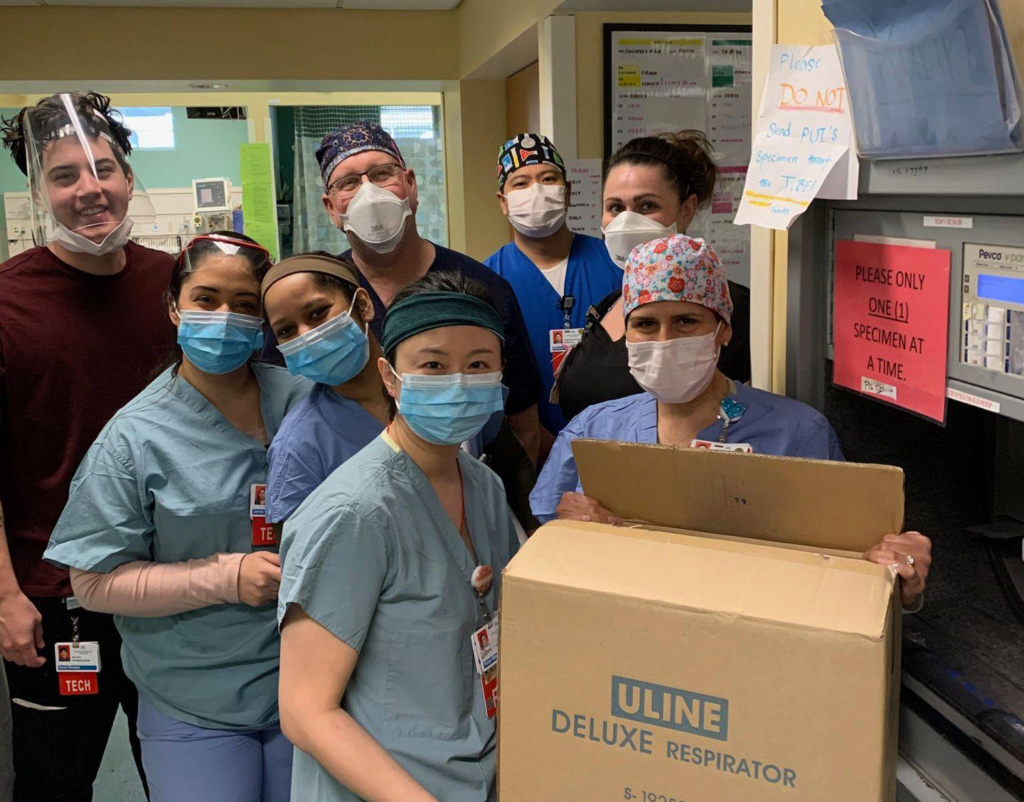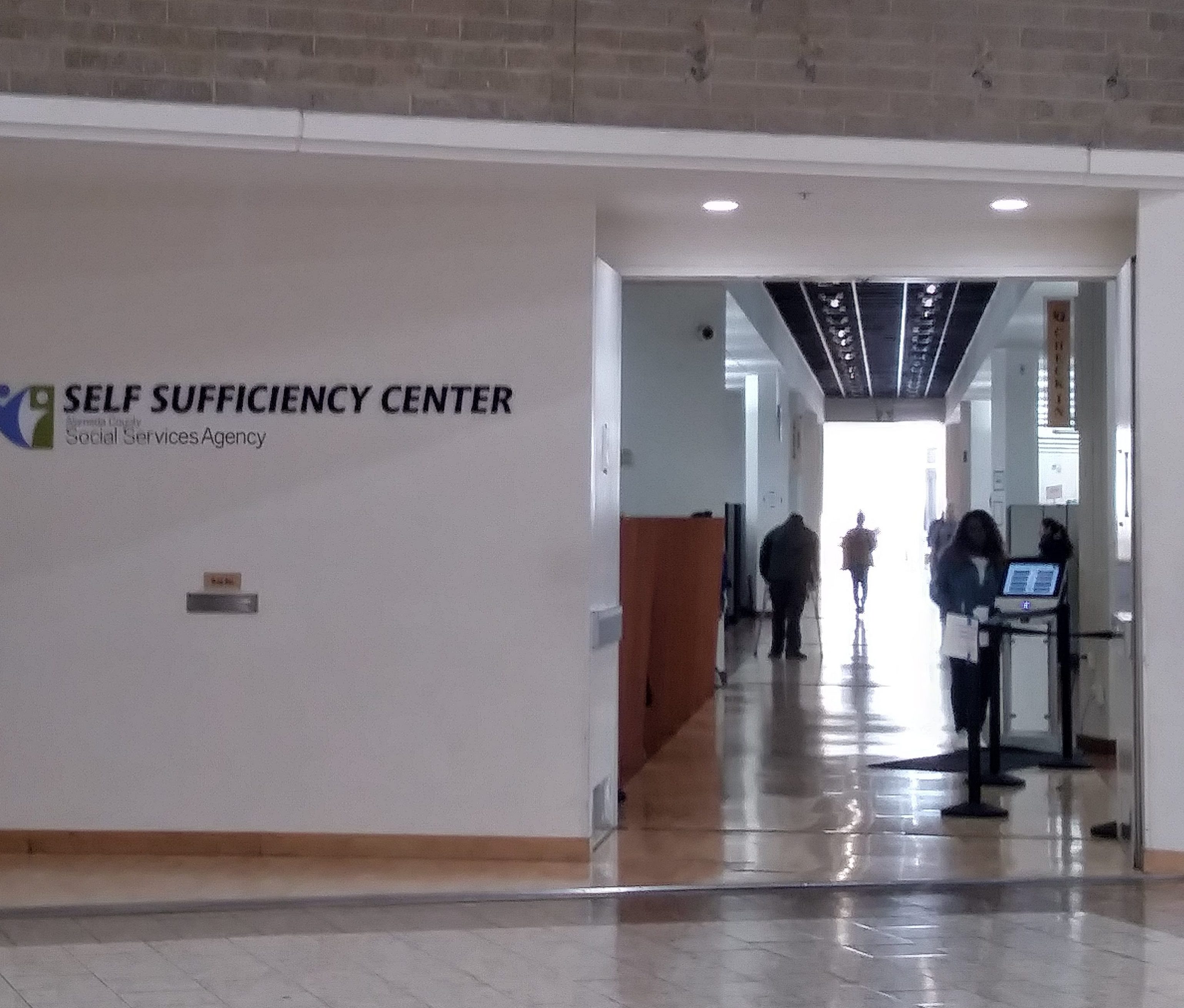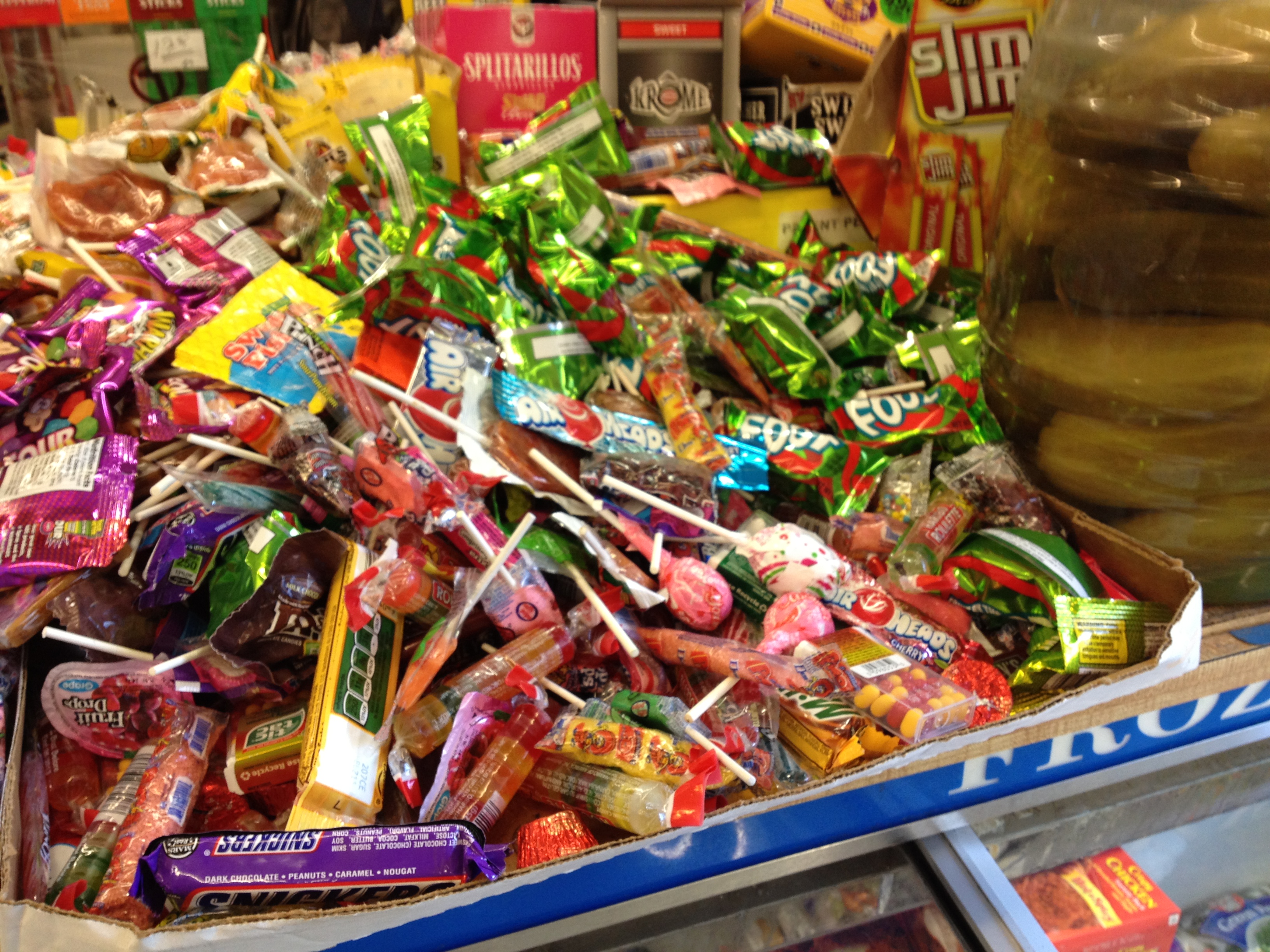
To help reduce the spread of coronavirus (COVID-19), Alameda County Public Health Department issued a new order requiring members of the public and workers to wear face coverings as of April 17, 2020. This is a shift from early messaging when masks were not recommended. The contradictory messages about mask-wearing has left many people confused, anxious, and eager to buy industrial grade face masks like N-95 respirators. But the Centers for Disease Control and Prevention (CDC) now asks the general public to not use N-95 respirators, so that N-95 masks can be reserved for healthcare workers. There may be no other local grassroots organization with more experience in the complexities of procuring and distributing N-95 respirators than Mask Oakland.
Quinn Redwoods launched Mask Oakland in 2017 in response to the air quality crisis caused by the North Bay fires. As a transgender, non-binary, disabled person who experienced housing insecurity, Redwoods (whose preferred pronoun is they/them) was frustrated that public health officials weren’t taking action to protect our most vulnerable, houseless neighbors during periods of extremely dangerous air quality in 2017.
In that first effort, Redwoods and other Mask Oakland volunteers purchased and distributed over 4,000 N95 masks— a type of respirator mask that is crucial for filtering out the type of fine particulate matter that communities across the state were seeing due to large fires.
The fire season the following year was just as devastating. Mask Oakland mobilized quickly and put out a call for financial donations to purchase and distribute N95 respirator masks. Thousands of donations poured in over night and media began to take notice. At the peak of their fire-related response throughout the state of California in 2018, Mask Oakland had over 100 volunteers distribute over 85,000 N95 respirator masks with the help of partner organizations like Oakland LGBTQ Community Center, Tenderloin Neighborhood Development Corp, East Oakland Boxing Association, and the East Oakland Collective.
It might seem that Mask Oakland would be well positioned to respond to the COVID-19 pandemic based on their success during past California fire seasons, but Redwoods explained the grassroots organization has become “an educated spectator in a global trade war.”
The demand for the materials required to make N95 grade masks is staggering. Past research estimated that the United States would need about 1.7 billion to 3.5 billion N95 masks in a pandemic. The largest mask producer in the US, 3M, can only supply 55 million masks per month, whereas Taiwan industry is able to produce 91 million masks per week.
In addition to global trade breakdowns, the landscape locally has shifted and processes vary wildly across the state. At the start of the pandemic, Mask Oakland donated N95 masks to a number of local East Bay hospitals, but since then, many local facilities now have corporations like Facebook donating their N95 mask stockpiles at such a massive scale they no longer need Mask Oakland’s donations.
In contrast, a doctor from South East Los Angeles County contacted Mask Oakland and in such dire need of hospital grade personal protective equipment (PPE) that the doctor was willing to make a 12-hour round trip drive to Oakland from Los Angeles for a donated supply of N95 masks.

“We are a fire response organization struggling to adapt. During the fires we needed three things: donated money to buy masks, a N95 respirator supplier to buy the masks, and volunteers to distribute them.” But responding to a pandemic is exponentially more complicated. “Now, I need to be an expert in US-China geopolitics, seven step supply chains, hospital procurement processes, virology, epidemiology, and possibly developing expertise in domestic home production.”
Redwoods is dedicated to being transparent with Mask Oakland supporters about the complexity of this disaster response. They plan to publish more details online soon about the organization’s ongoing efforts as they pivot to help our community’s most vulnerable. Redwoods added, “We have a responsibility to ensure any masks we supply and distribute don’t contribute to the spread of coronavirus, too.”
Now that face coverings are required, even if they are not the same industrial strength as an N95 respirator mask, Redwoods has advice for Oaklanders. “Any kind of mask is good right now. In fact, buying a home made mask may mean you’re less likely to get scammed” by supplier who will take money buy not ship the mask or instead ship you a low-grade mask that claims to be N95 quality. “If you pay for well-crafted, handmade mask, it should be washable. Wash it when you first get the mask and continue to wash it regularly.”
Most of all, Redwoods cautions Oaklanders “do not get lulled into a false sense of security because of a mask. Cloth masks can filter between 30-60% of particles but because you’re touching it regularly to put it on and off, it is an imperfect system. You must think of the mask as one part of a broader solution that includes rigorous hand washing and social distancing.”
Visit the Mask Oakland website to donate and learn more. If you’re looking for face covering masks that are not N-95 respirators, read this article about local activists and artists who can help.
An Oakland resident for over 25 years, Kat Ferreira's local Fruitvale area roots skip back a few generations to the early 1900s. Active in the community, she has volunteered with a variety of Oakland-based nonprofit organizations and neighborhood groups, including the Eastlake Music Festival, Friends of the Oakland Fox theater, Wardrobe for Opportunity, and more. Her professional background spans the public, private, and nonprofit sectors, with an emphasis on community advocacy, nonprofit fundraising, social policy research, online marketing and social media. You can follow Kat on Twitter and Instagram.




1 Trackback / Pingback